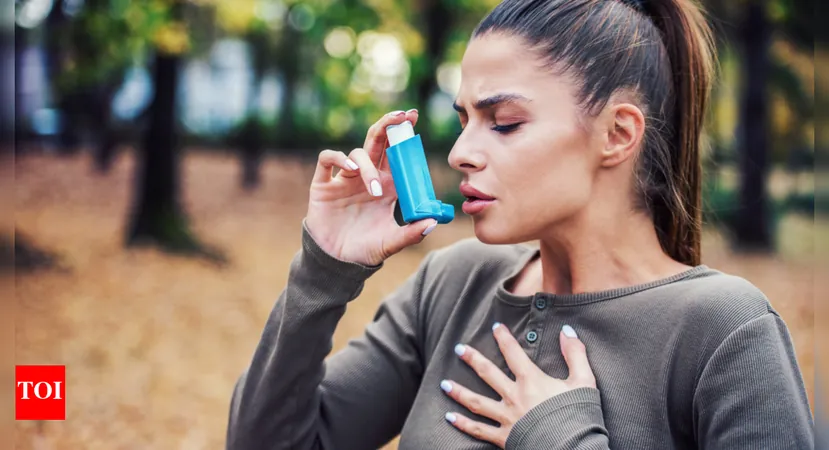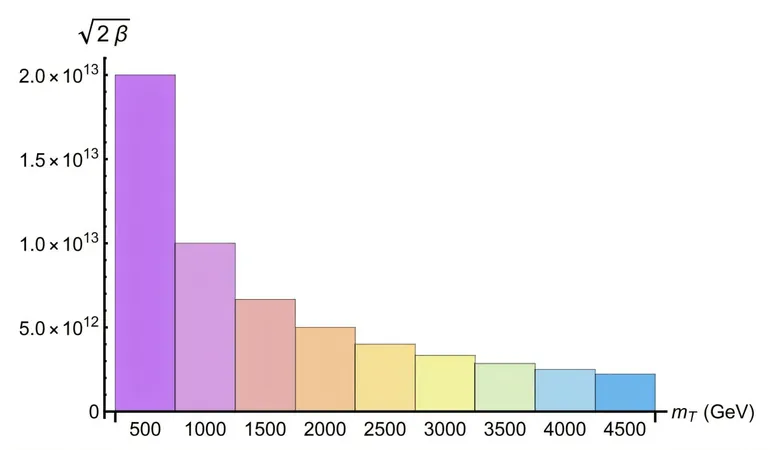
Asthma Unmasked: Debunking Myths and Finding Freedom from Medication
2025-05-05
Author: Ming
The Transformation of Mohit: A Journey Through Asthma
Meet Mohit, who faced his asthma diagnosis at just seven years old. His childhood was plagued by persistent coughs, chest tightness, and frequent trips to the doctor. The typical treatments—endless syrups and antibiotics—left his family exhausted. But a breakthrough came when Dr. Sushma Kirtani, a senior pediatrician, took a deeper look into Mohit's history. Switching him to inhalers marked a turning point in his recovery. With just ten days of proper usage, Mohit saw significant improvements, ultimately leading to a tailored treatment plan that set him free from frequent medical visits.
Understanding Asthma: Triggers and Insights
Asthma isn't just a childhood ailment; it can be influenced by a myriad of factors, ranging from environmental allergens like pollen and dust to household triggers like pet dander and old books. The Hospicio South Goa District Hospital reports an influx of patients—both kids and adults—particularly from urban settings. Asthma cases tend to spike during winter and monsoon seasons, when viral infections flourish. Interestingly, adults can develop asthma later in life due to workplace allergens or environmental changes.
The Crucial Role of Inhalers: Fact Over Fiction
Inhalers are the cornerstone of asthma management, yet many still harbor misconceptions about them being addictive. Dr. Govind Desai, a senior chest physician, emphasizes that inhalers typically contain minimal corticosteroids. These steroids act locally on the respiratory system, entering the bloodstream only in negligible amounts—meaning they do not cause addiction or major side effects. The danger lies in non-compliance: patients who skip their inhalers often find themselves in emergency situations.
Breaking the Stigma: Educating Parents on Inhaler Use
Despite the efficacy of inhalers, hesitation among parents persists. Many fear labeling their children as 'asthmatic' for life or worry about the strength of the medication. Dr. Kirtani highlights these myths, urging parents to embrace inhalers as a vital means to manage their children’s health. Proper training on using inhalers effectively is paramount; without it, the treatment won’t yield the expected results.
Proactive Strategies for Asthmatic Individuals
Dr. Durga Lawande, a seasoned pulmonologist, stresses the importance of adherence to treatment even after feeling better. Asthmatics often prematurely stop their medications, leading to flare-ups. She recommends a careful, gradual reduction of dosages under medical supervision to maintain control over airway inflammation. Additional tips include avoiding outdoor activities during high humidity, especially in the morning or late evening when symptoms can worsen. Wearing masks or warm clothing can provide a shield against cold air.
Empowering Asthma Patients: A New Hope
In light of the misconceptions surrounding asthma treatment, it's essential for patients and parents alike to equip themselves with knowledge. Understanding the proper use of inhalers and staying committed to treatment can mean the difference between managing asthma effectively and suffering from its debilitating effects. It's time to rewrite the narrative around asthma—empowerment and relief are not just possible; they are within reach!

 Brasil (PT)
Brasil (PT)
 Canada (EN)
Canada (EN)
 Chile (ES)
Chile (ES)
 Česko (CS)
Česko (CS)
 대한민국 (KO)
대한민국 (KO)
 España (ES)
España (ES)
 France (FR)
France (FR)
 Hong Kong (EN)
Hong Kong (EN)
 Italia (IT)
Italia (IT)
 日本 (JA)
日本 (JA)
 Magyarország (HU)
Magyarország (HU)
 Norge (NO)
Norge (NO)
 Polska (PL)
Polska (PL)
 Schweiz (DE)
Schweiz (DE)
 Singapore (EN)
Singapore (EN)
 Sverige (SV)
Sverige (SV)
 Suomi (FI)
Suomi (FI)
 Türkiye (TR)
Türkiye (TR)
 الإمارات العربية المتحدة (AR)
الإمارات العربية المتحدة (AR)